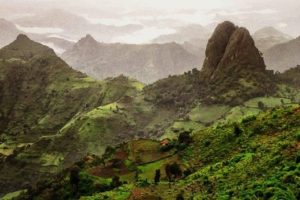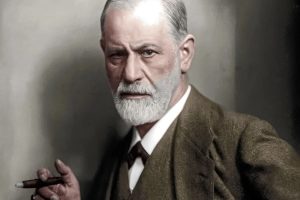
In this age of growing globalization, African needs to accelerate the process of institution-building in at least in two major areas, namely the building of genuinely independent media and cultural establishments that would make it competitive, self-assertive, and fully independent from the aggressive and profit-driven multinational corporations that work hard to maintain and perpetuate the international status quo based on domination and exploitation. This is one of the dilemmas Africa has been facing since independence and that still continues to produce and reproduce the same relations to the detriment of our continent.
The attempt for Africa to speak in one voice and project a genuine image to the rest of the world was started right after independence. However, this has not been pursued with consistency and determination that should be supported with a parallel process of institution- building that could support these efforts. True, African countries have been trying to speak to the world with a united voice. Yet, as most African countries were largely focused on consolidating the gains of their independence, the attempt to set up genuine Pan-African institutions has always been elusive to say the least.
Regarding institution-building in the media sector, African countries were busy setting up their national radio and television stations that were largely imitations or reflections of the media in metropolitan Europe. However commendable the achievements in these areas might be, they were not horizontally coordinated or integrated with a view to creating institutions that could articulate a common African voice, defend their cultural heritages and restore their old dignities and glories.
PANA is the acronym for Pan-African News Agency. “Pana Press or Pan-African News Agency is an African news agency and has its headquarters in Senegal Daka. It was founded on 20 July 1979 in Addis Ababa by the OAU and was re-launched by UESCO in 1993.it provides news in English, French and Portuguese.” The three languages are old colonial languages intended to propagate the old relations under new guises and provide a “model” for African countries along which they could establish their national media outlets. In more than 40 years of existence, PANA has not tried to include a few major African languages in its broadcasts and continues to propagate the same old model invented by neocolonialism.
According to available information, the function of PANA is defined as follows. “It is essentially meant to contribute to projecting the image of a continent on the winning side.” True, Africa has won the colonial battles a long time ago but what else has Africa won since the establishment of the PANA. There might have been isolated or individual victories but the overall picture has remained largely unchanged, as the continent continues to depend on foreign media outlets for its inspiration. Most of all Africa has not yet built it’s a common independent media institution predicated on its history, traditions, and a common vision. It still continues to imitate the same old philosophies, the same attitudes and practices.
No doubt that the establishment PANA in itself is a great achievement and a great service but it has not yet grown into producing one African media institution that would conduct research and promote the common vision of Africa and the reflection of its ambition to catch up to the advanced world on its own terms. Africa needs a common and ambitious media institution that would promote a genuinely African image to the world and not remain stuck in old stereotypes. African leaders often talk about African renaissance but they do not have a road map on how this renaissance is going to be realized or implemented not separately but in a common strategy that would take into consideration Africa’s vision for genuine political and economic independence that still remains an intangible illusion.
Growing globalization has rather undermined Africa’s quest for media independence by making it more and more dependent on foreign institutions that provide them with money, skills and expertise within the production within the same old relations of dependency. When in 1960, the then leaders of the emerging independent African states sat together at one table and discussed the future of African liberation and its aftermath, and the available options, the proposal for formation of the United States of Africa was rejected, African as untimely thus unrealistic. To put the matter bluntly, African leaders at that time could not speak with one voice and agree with Africa’s destiny as one, united entity. Looking in hindsight, we may realize that position was somehow right because the institutional and mental prerequisites were not yet present. If they wanted to build a unified African country, the very idea was not popular at that time.
When we look at the matter from the perspective of the present, it was even unimaginable to think of one Africa with one parliament, one president, one centralized administration and one international representation. The cultural and psychological preconditions were not yet available or mature. As theorists of nation building maintain, a common psychological outlook is a precondition among others. In the years after independence, leaders of every African country were struggling to consolidate their hard won freedom in the face of aggressive neocolonial powers that were furious at the loss of their colonies and tried to retain them by hook or by crook.
History teaches us that some historical agendas or courses of actions are delayed simply because it was not the right time to implement them. The objective and subjective conditions were not ripe for their implementation. What could have happened at that time had African leaders had chosen to established a unified African government? Well, that dream could have fizzled out simply because of the inherent weaknesses of maintaining a huge continent with hundreds of languages and ethnic groups under one umbrella a Herculean undertaking or daunting if not an impossible task.
Yet, there are also realistic options for building a united Africa brick by brick instead of at one go while Africans need to be educated to achieve the psychology of one united Africa, build infrastructures and institutions to this end and coordinate their actions in that direction and under the close coordination and monitoring under the then Organization of African Unity (OAU). Africa has built a huge institution that was called the OAU and is now called the AU. It has also joined international organizations and agencies and that is fine. It is now engaged in the global struggle to assert itself through independent and vibrant institutions such as a common media organization and a common cultural institution that would allow the continent to become competitive in the market of ideas and defend its heritages as well.
Africa does not yet have one common center for the development, research, advocacy and defense of African culture that could both help the strategic objective of economic integration, political unity and cultural expression on the world stage. It is no doubt urgent to create such a center somewhere in Africa so that Africa can speak its own languages claim back its own heritages. Hundreds, if not thousands of cultural relics were stolen from Africa by the colonizers and taken to Europe. These relics and artifacts are still adorning European museums and anthropological research centers.
The struggle for the repatriation of stolen African relics is being carried out by individual African countries instead of institutions. For this reason the arduous work of cultural repatriation is going too slowly and very scant results. Africa’s cultural resources are put for sale by various clandestine businesses that conduct illegal transactions in African heritages and getting a lot of money from it. Advocacy against illegal transactions in works of arts could be more productive and more meaningful had it been conducted under the supervision of a continental advocacy institution that could mobilize available resources and promote advocacy work with better results.
Africa could not achieve cultural autonomy if not hegemony because it did not work hard to compete with established global cultures such as those of America and Europe. This could not change much the realities of the colonial times because cultural hegemony, more than political hegemony is the key ingredient for a nation or a continent to achieve leadership or the upper hand in global cultural competition.
European arts dealers do not even recognize or know how Africa has contributed to the development of their modern arts. Most of them do not care whether African wooden and metal masks have given inspiration for cubist art and even Pablo Picasso has recognized this fact as it can be seen from his works that are considered masterpieces to this day. African artists could defend their heritages better had there been an African-wide institution that could back them and encourage their activities. For this and many other reasons, the establishment of an all-African center for the promotion and defense of African culture is a must now than more than ever before.
BY MULUGETA GUDETA
THE ETHIOPIAN HERALD SATURDAY 23 SEPTEMBER 2023





